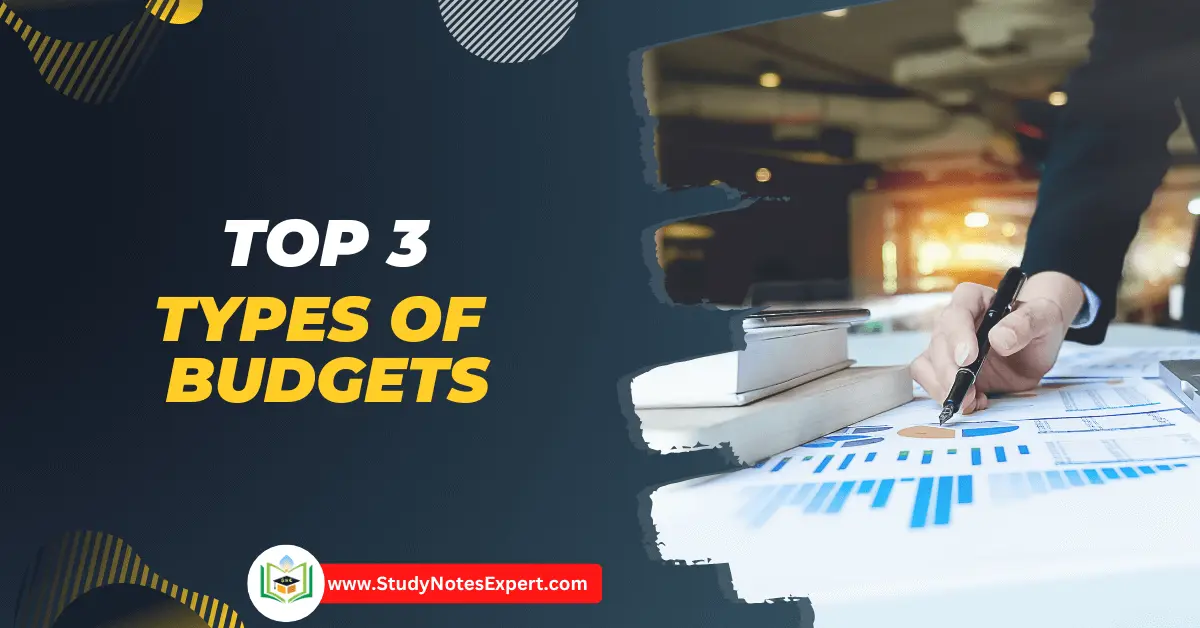There are many types of budgets and budgets are very crucial aspects for every business. Budgets are usually classified according to their specific type. The most frequently used budgets are:
Major 3 Types of Budgets
On the Basis of Time
The budget based on time is as follows:
1) Long-Term Budgets
Budgets have a longer time frame that ranges from 5-10 years. This kind of budget is created at the highest level. The diverse areas that these budgets cover include the areas of research and development, capital expenditures, long-term financials, etc. These budgets are particularly beneficial in industries with the lengthy time of gestation. The most common examples are power and infrastructure.
2) Short-Term Budgets
The budgets are created for a 1-2 year period. These types of budgets are utilized in the consumer sector, such as clothing, beverage manufacturing, electronics, food production, and more.
3) Current Budgets
They typically run between a few weeks and two months. The budget focuses on the current activity. According to LC.W.A. London, “Current budget is a budget which is established for use over a short time and is related to current conditions.”
On the Basis of Functions/ Functional Budget
Budgets based on operating budgets are in the following order:
1) Operating Budgets
They are a part of the various activities of a company. Different organizations have different types of budgets dependent on their organizational structure and procedures. The most popular operating budgets can be described as follows:
I) Budget for Materials
This kind of budget deals with the raw material, packing materials, and other components used in the manufacturing process. It provides monetary and quantitative representation.
II) Production Budget
This budget is part of the overall budget. It is responsible for determining the production goals for the future. The types of budgets estimates the number of units manufactured for each product.
iii) Sales Budget
The budget forecasts the expected sales over the budget period. The budget is comprehensive and is the basis for the sales department.
IV) Labour Budget
The budget is drawn up along with the production budget. When the production amount has been budgeted, the following step is determining the labor required for performing production. The budget also forecasts the cost of labor by multiplying labor hours budgeted with the wage rate.
v) Overhead Budget
This type of budget is essential to prepare the Production Budget. The budget is responsible for indirect costs. It also collects information from different departments.
If a business creates its budget in the forms of programs or other responsibility areas, it could involve one of the following:
I) Programme Budget
This budget lists the expected revenues and costs of various products or projects. This types of budgets lists the estimated revenue, cost, and profits of the various programs that the organization runs.
II) Budget for Responsibility
A budget for operating expenses designed to be used in the area of responsibility is called the responsible budget. It outlines the plans of those who are accountable for their implementation. It is also helpful for controlling purposes. The budget is used to evaluate the performance of management personnel responsible for various programs.
2) Financial Budget
This types of budgets includes capital expenditure, working capital cash receipts, disbursements, and cash, as well as the company’s financial standing. The most frequently utilized budgets for financials are:
- Cash Budget.
- Working Capital Budget.
- Capital Budget for Expenditures.
- The Income Statement Budget.
- Statement of Budget for Retained Earnings,
- Budgeted Balance Sheet or Position Statement Budget.
3) Master Budget
Master budgets are created by combining a variety of functional budgets. According to IC.W.A. London, “The Master Budget is the summary budget incorporating its functional budgets.” This budget is beneficial for the top managers and can coordinate the various departments’ various activities. This budget could be used as a basis for a control measure.
On the Basis of Flexibility
Budgets based on flexibility can be described as the following:
1) Fixed or Static Budget
Static budgets were developed to meet a certain level of activity. It is prepared before the start of the fiscal year. This types of budgets needs to be adjusted according to the actual situation. There is typically an in-between period of over 12 months between budgeted figures and actual numbers.
2.) Flexible Budgets
Flexible budgets are several budgets that deal with various levels of activity Based on the title. The budget differs based on the activity level. It categorizes various cost categories into fixed and different cost classes.

